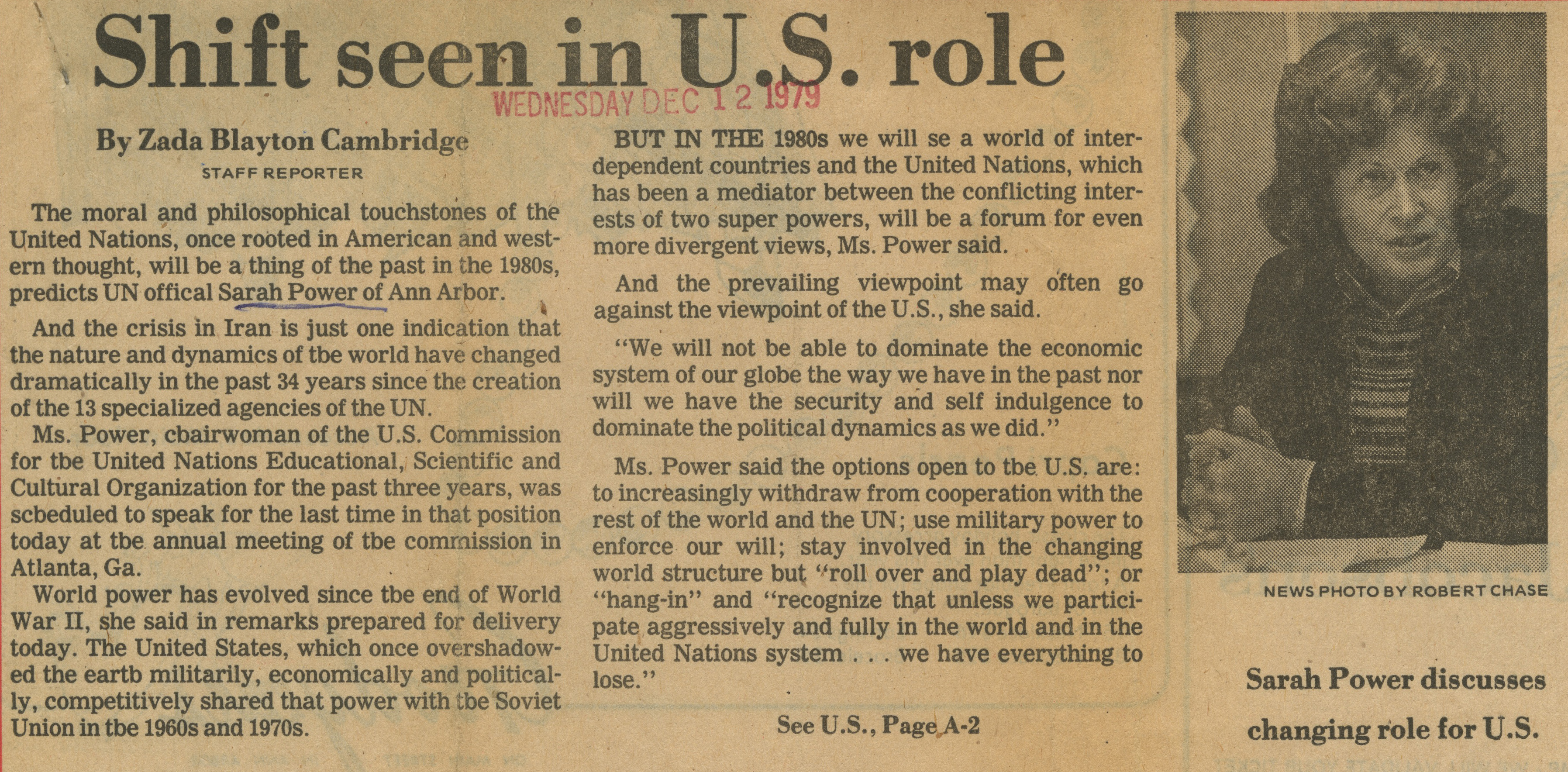Shift Seen In U. S. Role


The moral and philosophical touchstones of the United Nations, once rooted in American and western thought, will be a thing of the past in the 1980s, predicts UN official Sarah Power of Ann Arbor.
And the crisis in Iran is just one indication that the nature and dynamics of the world have changed dramatically in the past 34 years since the creation of the 13 specialized agencies of the UN.
Ms. Power, chairwoman of the U.S. Commission for the United Nations Educational, Scientific and Cultural Organization for the past three years, was scheduled to speak for the last time in that position today at the annual meeting of the commission in Atlanta, Ga.
World power has evolved since the end of World War II, she said in remarks prepared for delivery today. The United States, which once overshadowed the earth militarily, economically and politically, competitively shared that power with the Soviet Union in the 1960s and 1970s.
BUT IN THE 1980s we will sea world of interdependent countries and the United Nations, which has been a mediator between the conflicting interests of two superpowers, will be a forum for even more divergent views, Ms. Power said.
And the prevailing viewpoint may often go against the viewpoint of the U.S., she said.
"We will not be able to dominate the economic system of our globe the way we have in the past nor will we have the security and self indulgence to dominate the political dynamics as we did.
Ms. Power said the options open to the U.S. are: to increasingly withdraw from cooperation with the rest of the world and the UN; use military power to enforce our will; stay involved in the changing world structure but "roll over and play dead"; or "hang-in" and "recognize that unless we participate aggressively and fully in the world and in the United Nations system ... we have everything to lose."
TO NOT aggressively participate in the UN system, she said, would give UNESCO members who have favored a New World Information System the leeway to progressively destroy press freedom around the world and lead the way for the erosion of academic, scientific and cultural freedom as well, she said.
Ms. Power says one of the U.S. Commission's major accomplishments during her term was the November 1978 UNESCO general conference endorsement of free press and the need to improve the quality of the flow of news between developing and developed countries.
Other major events in UNESCO over the past seven years, said Ms. Power, was the U.S. cut-off and then restoration of funds to UNESCO: naming as a major objective the improvement of the status of women and their participation in economic, social and cultural development; and a more broadly developed human rights program.
In the future, UNESCO will tackle the formulation of standards for artists and the question of the organization of international sports competitions, which said Ms. Power, “have been hideously and tragically politicized."
"IN SOME ways I feel this may be one of the toughest jobs, certainly that I've ever done, but that I might do again because of the issues coming together while I was chair."
The theme of world free press will highlight the four-day agenda of the U.S. commission's annual meeting.
The 1978 declaration for world free press represented a compromise, "a declaration we can live with," said Ms. Power. The aim of the meeting this week, is to come up with a policy covering Third World concerns of imbalance, control by wealthier nations of news ownership and operation, and the near total dependency on information systems of developed countries.
Commission members too, she said, will have to take into account which countries want our philosophical and technical assistance and which countries don't.